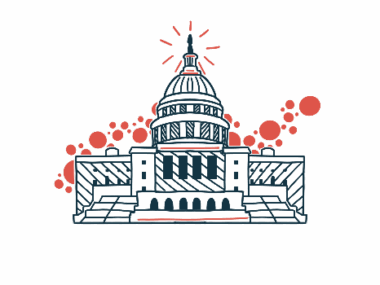When ALS overshadows other parts of your identity
As a caregiver and spouse, managing my husband's ALS is mostly what I do
Written by |

I’ve been helping my husband, Todd, ever since he was diagnosed with ALS more than 15 years ago. It started with me buttoning his dress shirts before he went to work, and then I helped him shave. Eventually, he needed my help with eating, toileting, showering, scratching itches, adjusting limbs, and coughing.
When people ask what I do, I usually say, “I am my husband’s caregiver.” I explain that he is paralyzed, and if I were to get another job, we’d have to hire someone to care for him. Being Todd’s caregiver has become a major part of my identity. I find support and community in ALS caregiver-spouse groups on Facebook. Connecting with other caregivers makes me feel less alone.
Todd, on the other hand, has not joined any online support groups. When we discussed why, he said, “I wouldn’t be friends with someone just because we both have ALS. I’d be friends with someone who had ALS if we had other interests.”
Todd doesn’t view ALS as part of his identity.
Our daughter, who grew up with her father’s ALS, said something similar when she was a teenager. I’d asked if she wanted to go to a Hope Loves Company camp, where she could connect with other teens whose parent has ALS. “I want to go to Broadway camp and connect with people who have the same interests, not the same problems,” she explained.
We’ve tried our best not to make our children responsible for their father’s care, and we’ve encouraged them to develop their own interests through sports and other extracurricular activities.
I asked Todd why he thinks ALS is a bigger part of my identity. Todd said that ALS is what I do.
I don’t have a lot of time to develop other interests, and I can’t be away from home for long unless I hire help. My days revolve around Todd’s needs. Managing ALS is what I do: I find equipment. I line up night caregivers. I spend much of my day caring for him.
Todd did grieve what ALS took from him, particularly his career, which had been a large part of his identity. But ALS did not take away his being a husband and father, and he now busies himself with artistic projects, volunteering for our church, and following current events.
In what ways has ALS become part of your identity? Please share in the comments below.
Note: ALS News Today is strictly a news and information website about the disease. It does not provide medical advice, diagnosis, or treatment. This content is not intended to be a substitute for professional medical advice, diagnosis, or treatment. Always seek the advice of your physician or other qualified health provider with any questions you may have regarding a medical condition. Never disregard professional medical advice or delay in seeking it because of something you have read on this website. The opinions expressed in this column are not those of ALS News Today or its parent company, Bionews, and are intended to spark discussion about issues pertaining to ALS.






Scott Mills
I’m just like Todd. I have ALS but it’s the last thing I want to be remembered for. I’m doing and coping the best I can but I just don’t feel the need to go beyond the support system I have now.
Teri Walsh
I have found that doctors stop seeking solutions when they learn I am an ALS patient. That becomes my medical identity, and they blame whatever the issue I sought help on on ALS.